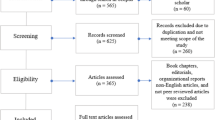Abstract
This paper explores the dynamics of health and health care in Cuba during a period of severe crisis by placing it within its economic, social, and political context using a comparative historical approach. It outlines Cuban achievements in health care as a consequence of the socialist transformations since 1959, noting the full commitment by the Cuban state, the planned economy, mass participation, and a self-critical, working class perspective as crucial factors. The roles of two external factors, the U.S. economic embargo and the Council of Mutual Economic Cooperation (CMEA), are explored in shaping the Cuban society and economy, including its health care system. It is argued that the former has hindered health efforts in Cuba. The role of the latter is more complex. While the CMEA was an important source for economic growth, Cuban relations with the Soviet bloc had a damaging effect on the development of socialism in Cuba. The adoption of the Soviet model of economic development fostered bureaucracy and demoralization of Cuban workers. As such, it contributed to two internal factors that have undermined further social progress including in health care: low productivity of labor and the growth of bureaucracy. While the health care system is still consistently supported by public policy and its structure is sound, economic crisis undermines its material and moral foundations and threatens its achievements. The future of the current Cuban health care system is intertwined with the potentials for its socialist development.
Similar content being viewed by others
References
Giplin M. Cuba: On the Road to Family Medicine Nation.Fam Med 1989; 21(6):405–471.
Iatridis DS. Cuba's Health Policy: Prevention and Active Community Participation.Soc Work 1990; 35(1):29–35.
Swanson JM. Health Delivery in Cuba: Nursing's Role in Achievement of the Goal of “Health for All”.Int J Nurs Stud 1988; 25(1):11–21.
Dominguiz AV. Stimulating Community Involvement Through Mass Organizations in Cuba: The Women's Role.Int J Health Educ 1977; 20(1):57–60.
Stein Z. The Cuban Health System: A Trail of a Comprehensive Service in a Poor Country.Int J Health Serv 1972; 2(4):551–66.
Navarro V. Health Services in Cuba: An Initial Appraisal.N Engl J Med 1972; 2(4):551–66.
Roemer MI. National Health Systems as Market Interventions.Public Health Policy 1989; 10:62–77.
Conkin DW.Comparative Economic Systems, Cambridge: Cambridge University Press, 1991.
Susser M. Health as a Human Right: An Epidemiologist's Perspective on the Public Health.Am J Pub Health 1993; 83(3):418–426.
Kuntz D. The Politics of Suffering: The Impact of the U.S. Embargo on the Health of the Cuban People: Report of a Fact-Finding Trip to Cuba, June 6–11, 1993.Int J Health Serv 1994; 24(1):161–177.
Greenhouse S. President Considers a Cuban Blockade.The New York Times, August 22, 1994.
Cotayo NL. Blockade's Impact on Medical Care.Granma International, March 9, 1994.
Tablada C.Che Guevara. Economics and Politics in the Transition to Socialism. Sidney: Pathfinder/Pacific and Asia, 1989.
Zimbalist A, Brundenius C.The Cuban Economy. Baltimore: The Johns Hopkins University Press, 1989.
Trotsky L.The Revolution Betrayed: What is the Soviet Union and Where is it Going? New York: Pathfinder Press, 1972.
Giplin M. Update—Cuba: On the Road to a Family Medicine Nation.Public Health Policy 1991; 12(1):83–103.
Scheper-Hughes N. AIDS, Public Health, and Human Rights in Cuba.Lancet 1993; 342 (8877):965–967.
Rodriguiz E. AIDS: 8 Years Later.Granma International, June 22, 1994.
Feinsilver JM.Healing the Masses: Cuban Health Politics at Home and Abroad. Berkeley: University of California Press, 1993.
Summerfield D. Western Economics and Third World Health.Lancet 1989; 8662, II:551–552.
Author information
Authors and Affiliations
Rights and permissions
About this article
Cite this article
Nayeri, K. The Cuban health care system and factors currently undermining it. J Community Health 20, 321–334 (1995). https://doi.org/10.1007/BF02283057
Issue Date:
DOI: https://doi.org/10.1007/BF02283057




